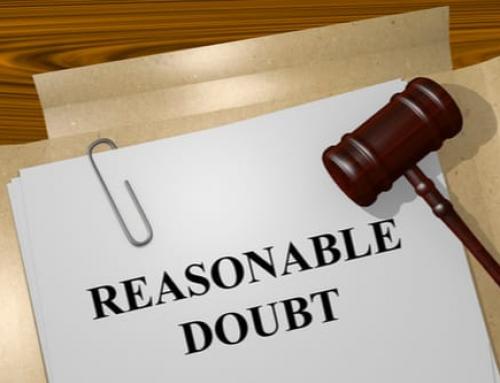When you are facing criminal charges, it is extremely important that you avoid giving too much information to the prosecution. With rare exceptions, once you say something you can’t take it back—even if you didn’t realize you were putting your defense at risk.
The attorney-client privilege allows you to speak openly with your attorney without fear of your words being used against you. It is deeply rooted in our criminal justice system, and criminal defendants rely on the attorney-client privilege every single day. But, privilege has its limits, and understanding where these limits lie is important for protecting yourself during your criminal case.
7 Important Facts about the Attorney-Client Privilege in Criminal Cases
So, if you are facing criminal charges in Pennsylvania, what do you need to know about the attorney-client privilege? Here are seven important facts to keep in mind:
1. The Attorney-Client Privilege Requires an Attorney-Client Relationship
The attorney-client privilege requires an attorney-client relationship. Just because you say something to someone who happens to be an attorney, this doesn’t mean that the information you shared is privileged.
It is also why law firm websites like ours include disclaimers like, “Our site doesn’t create an attorney-client relationship.” An attorney-client relationship doesn’t exist until you speak with an attorney one-on-one and engage the attorney to represent you. From that point forward, nearly everything you say to your attorney (until the end of your engagement) will be privileged—subject to the exceptions discussed below.
2. The Attorney-Client Privilege Requires Your Attorney to Keep Your Information Confidential
The attorney-client privilege imposes an obligation on your attorney to protect your confidential information. This obligation exists under Pennsylvania’s Rules of Professional Conduct for attorneys. If your attorney shares confidential information in violation of the Rules of Professional Conduct, this is a very serious matter that could potentially cause your attorney to get suspended or disbarred.
There are certain types of information that your attorney may be permitted (or required) to share despite the existence of the attorney-client privilege, as discussed in greater detail below. If this becomes an issue in your case, your attorney should discuss the issue with you as promptly as possible.
3. Telling Your Attorney Something Doesn’t Make It Confidential
There is a popular misconception that simply telling your attorney information makes that information confidential. But, this isn’t the case. While your attorney might have an obligation to protect the information, anyone else who already knows the information will still be able to share it.
The same applies to documents. If someone else has a copy of a document that you share with your attorney, that another copy is still out there. However, if you or your attorney creates a document within the scope of your representation (i.e., a memo discussing potential defenses), this document would generally be protected under the attorney-client privilege.
4. Not All Information is Protected Under the Attorney-Client Privilege
While the attorney-client privilege protects the vast majority of the information a person might share with his or her attorney in connection with a criminal case, there are a few exceptions. For example, if an attorney knows his or her client, “intends to engage, is engaging or has engaged in criminal or fraudulent conduct related to the [client’s] proceeding,” then the attorney must take reasonable remedial measures, “including, if necessary, disclosure.”
Attorneys also may reveal clients’ information in certain other circumstances. These include (but are not limited to):
- “To prevent reasonably certain death or substantial bodily harm;”
- “To prevent the client from committing a criminal act that the lawyer believes is likely to result in substantial injury to the financial interests or property of another;” and,
- “To comply with other law or court order.”
5. As the Client, It Is Up to You Whether to Waive the Attorney-Client Privilege
As discussed above, your attorney has an obligation to protect your attorney-client privilege. This means that only you, as the client, can waive it. While it may make sense to waive the attorney-client privilege in certain circumstances, this is not a decision you want to take lightly. You should only waive the privilege if your attorney recommends it, and you should let your attorney help ensure that you do not waive your rights any more than is absolutely necessary.
6. You Can Waive the Attorney-Client Privilege Accidentally
It is important to understand that you can waive the attorney-client privilege accidentally. There are no specific or “magic” words that are required to waive the privilege. In fact, simply disclosing information that you have shared with your attorney can be enough to constitute a waiver.
Once you waive the attorney-client privilege, the floodgates may open. The prosecution may argue—and rightly so—that the privilege no longer protects any information you shared with your attorney. This could have devastating consequences for your defense. As a result, it is generally best that you not disclose any information that you have shared with your attorney under any circumstances (unless you are knowingly waiving the privilege on the advice of counsel).
7. The Attorney-Client Privilege Isn’t Your Only Privilege in a Criminal Case
Finally, the attorney-client privilege isn’t the only privilege you have as a criminal defendant in Pennsylvania. For example, the spousal privilege generally protects communications between married individuals. Additionally, the Fifth Amendment privilege against self-incrimination ensures that you are not required to say anything prosecutors can use against you in court.
Whether you have been charged with DUI, a drug crime, homicide, or any other criminal offense in Pennsylvania, you need to make sure you know your rights—and how to protect them. If you’d like to know more, schedule a confidential consultation at The Fishman Firm today.
Request a Confidential Consultation with a Philadelphia Criminal Defense Lawyer
Philadelphia criminal defense lawyer Brian Fishman has more than 15 years of experience representing clients in criminal cases. He served as an Assistant District Attorney in Philadelphia prior to entering private practice. To discuss your case with Mr. Fishman in confidence, call 267-758-2228 or tell us how we can reach you online today.






